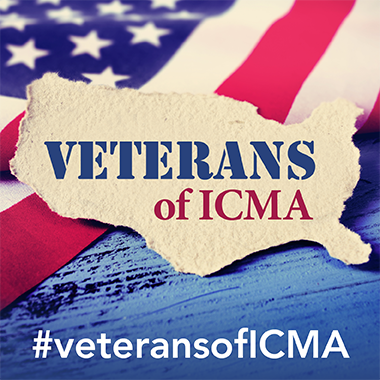
John Helin (JH) served for 21 years as an infantry officer in the U.S. Army and retired as a Lieutenant Colonel, then made a transition to a career in local government. He served for 19 years in the profession and spent a majority of his time in Bonner Springs, Kansas, serving as city manager, where he retired at his final council meeting on October 26, 2015.
Q1: After serving in the military, what interested you in having a career in local government?
JH: After 21 years of service in the Army I wanted to continue to serve, but at the local level. I felt I could use my knowledge and experience in a municipal setting.
Q2: What skills/knowledge/background from your military career have you been able to apply to your local government career?
JH: The professional development training I received throughout my Army career combined with my experience as a unit commander and staff officer gave me a large skill set that translated well to municipal government. Being flexible and having the ability to adapt to changing situations is a key skill in the Army, and having that experience is very helpful when serving as a city manager. Also, understanding the importance of developing your staff is something that I carried over from my military career. Teaching, coaching, and mentoring the staff to improve their skills and to prepare them to do the same for their subordinates is a leaders true legacy.
Q3: Do you have any tips/advice for active duty personnel or veterans who are interested in a career in local government?
JH: If you don't already have one, obtain a college degree, preferably a master's in public administration. Also, seek out opportunities to network with professionals in the field in which you'd like to get a job. Don't be afraid to look at assistant positions to get started and ensure you've "civilianized" your resume. I would encourage contacting someone who has gone through this transition and seek advice and counsel from them as well.
Q4: With veterans returning home to a weak and challenging labor market, have you implemented any sort of veteran’s program in your community, such as: employment, health, housing, education, and the transition to civilian life?
JH: I serve on a panel for the soldier transition program at Fort Leavenworth, Kansas, where I and other professionals share our experiences and provide advice to soldiers transitioning to civilian life.
Q5: Are there any educational/professional development programs that you would recommend to veterans who are transitioning from a career in the military to a career in local government?
JH: Get your degree and, if necessary, volunteer your time to a local municipality. When I was working on my master's degree, I met with a city manager in a nearby town and asked if he had any projects that needed some help. I was fortunate, and he provided me the opportunity to do several projects that I was able to complete for him and was then able to put those experiences on my resume.
New, Reduced Membership Dues
A new, reduced dues rate is available for CAOs/ACAOs, along with additional discounts for those in smaller communities, has been implemented. Learn more and be sure to join or renew today!
